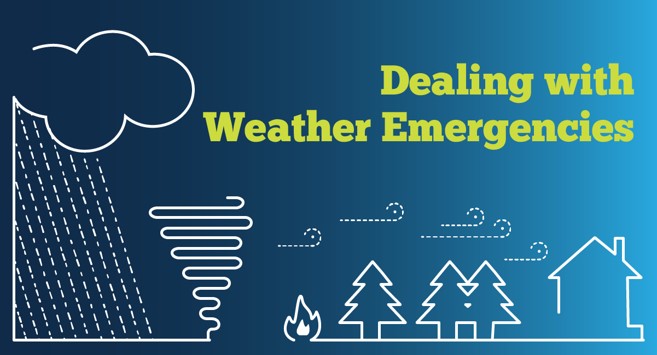June 1st marks the start of hurricane season, but weather emergencies can happen anytime. The FTC encourages businesses to have a plan in place to safeguard your facilities, products, and data. And we’ve just introduced new resources aimed at helping you protect your workforce.
 Like your business, your employees need to prepare for extreme conditions – a task best undertaken when skies are sunny. Helping them formulate a personal plan can save lives and mitigate property losses. In addition, a resilient workforce makes it easier for your business to get back to business as soon as possible. The FTC’s new site, Dealing with Weather Emergencies, available at www.ftc.gov/weatheremergencies, has practical advice to help your staff prepare for the unexpected, spot the scams that often follow, and get back on their feet financially.
Like your business, your employees need to prepare for extreme conditions – a task best undertaken when skies are sunny. Helping them formulate a personal plan can save lives and mitigate property losses. In addition, a resilient workforce makes it easier for your business to get back to business as soon as possible. The FTC’s new site, Dealing with Weather Emergencies, available at www.ftc.gov/weatheremergencies, has practical advice to help your staff prepare for the unexpected, spot the scams that often follow, and get back on their feet financially.
What’s covered on the new site? Everything from conducting a household inventory and stocking a secure grab-and-go box of essential documents to choosing a trusted out-of-town contact and managing money after an emergency. (We even link to tips on protecting the family pet.)
Here are three ways your business can use these new resources:
- Share www.ftc.gov/weatheremergencies with your staff. Telling your team “We care about your safety” is nice, but offering concrete resources shows what kind of company they work for. Spring for some snacks and sponsor a coffee break with a purpose. Enlist your HR expert to help your employees develop personal preparedness plans.
- Care for your community. Are you active in local business organizations and community groups? Encourage them to take up the cause of preparedness. Use your social networks to share the FTC’s new advice with colleagues and customers.
- Be part of the solution. If disaster strikes, use your standing in the business community to help people get back on their feet. We’ve put together a customizable one-page handout, Picking Up the Pieces after a Disaster, with key tips drawn from the FTC’s site. You can download the template, add local consumer protection and emergency service contacts, print copies, and distribute them.
Maybe your company has weathered the storm of flooding, fires, hurricanes, etc. Based on your experience, what advice can you share with other businesses about preparing for emergencies?
